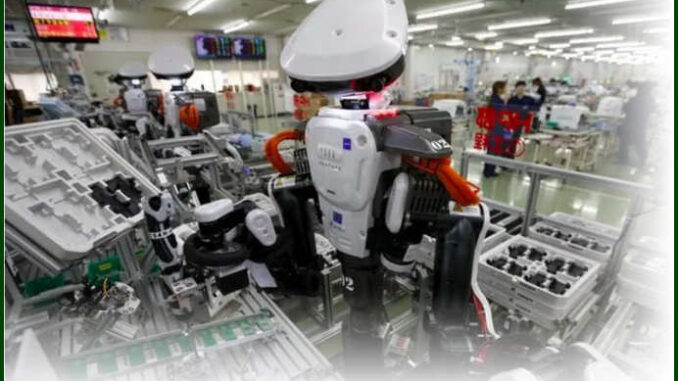
The landscape of work is undergoing a dramatic transformation, driven by advancements in automation and artificial intelligence (AI). As we look toward 2030, the impact of these technologies will reshape industries, redefine job roles, and change how we work. In this post, we’ll analyze how automation will affect various sectors, the opportunities it presents, and the skills needed to thrive in this evolving environment.
The Rise of Automation
Automation refers to the use of technology to perform tasks that would typically require human intervention. This can range from simple mechanical processes to complex AI algorithms that can analyze data, make decisions, and even interact with customers. As technology continues to evolve, the scope of automation is expanding, leading to significant changes across multiple industries.
Industries Impacted by Automation
- Manufacturing
The manufacturing sector has already seen considerable automation through robotics and advanced machinery. By 2030, this trend will continue, with factories employing smart robots that can adapt to new tasks, reduce waste, and optimize production processes. While this may lead to job displacement, it also creates opportunities for skilled workers who can design, maintain, and operate these advanced systems.
- Retail
In the retail industry, automation is transforming how customers shop and how businesses manage inventory. Automated checkout systems, smart shelves, and AI-driven inventory management tools are becoming increasingly common. While this may reduce the need for cashiers and stock clerks, it opens up new roles in data analysis, supply chain management, and customer experience enhancement.
- Healthcare
Automation in healthcare has the potential to improve patient outcomes and streamline operations. From robotic surgical systems to AI-driven diagnostic tools, automation can assist healthcare professionals in providing better care. However, this shift will also require workers to adapt by developing skills in data management, telemedicine, and patient interaction.
- Transportation
The transportation sector is on the brink of a major overhaul with the advent of autonomous vehicles. By 2030, we may see widespread adoption of self-driving cars, trucks, and drones. While this could impact jobs in driving and logistics, it will also create new opportunities in vehicle maintenance, AI programming, and transportation infrastructure development.
- Finance and Banking
Automation is transforming the finance sector through the use of AI for tasks such as fraud detection, risk assessment, and customer service. As traditional roles like bank tellers diminish, new opportunities will emerge in fintech, data analysis, and cybersecurity.
Opportunities Created by Automation
While automation may displace certain jobs, it also presents numerous opportunities for workers and businesses alike. Here are some key areas where automation is expected to create new roles:
- Data Analysis
As organizations generate more data than ever before, the demand for data analysts and scientists will grow. Professionals who can interpret complex data and derive actionable insights will be essential for guiding business strategies.
- AI and Machine Learning Specialists
With the rise of AI and automation, there will be an increased need for specialists who can design, develop, and maintain AI systems. These roles will require a deep understanding of algorithms, programming, and machine learning techniques.
- Cybersecurity Experts
As automation becomes more prevalent, the risk of cyber threats will also rise. Cybersecurity experts will be crucial for protecting organizations from data breaches and ensuring the security of automated systems.
- Healthcare Professionals
As technology enhances healthcare delivery, the demand for skilled healthcare professionals who can navigate new systems and technologies will continue to grow. Roles in telemedicine, health informatics, and patient care coordination will be increasingly important.
- Creative and Strategic Roles
Automation is less likely to replace jobs that require creativity, emotional intelligence, and complex problem-solving. Careers in marketing, design, and strategic planning will continue to thrive as organizations seek innovative solutions and human-centric approaches.
Skills Needed for the Future Workforce
To succeed in the evolving job market shaped by automation, workers will need to develop a new set of skills. Here are some essential skills for the future workforce:
- Digital Literacy
A solid understanding of digital tools and technologies will be essential for almost every job. Workers should be comfortable using software, apps, and online platforms relevant to their industry.
- Adaptability and Continuous Learning
The ability to adapt to new technologies and learn continuously will be critical. Workers should be proactive in seeking out training and education to keep their skills relevant.
- Critical Thinking and Problem Solving
As automation handles routine tasks, workers will need strong critical thinking and problem-solving skills to address complex challenges and make informed decisions.
- Emotional Intelligence
With automation taking over many technical tasks, emotional intelligence will become increasingly important. Skills in communication, empathy, and collaboration will be vital for building relationships and fostering teamwork.
- Technical Skills
Workers should develop technical skills relevant to their industry, such as programming, data analysis, or machine operation. Technical proficiency will enhance employability in an automated job market.
Conclusion
As we approach 2030, the impact of automation on the workforce will be profound. While it will bring about challenges and changes in various industries, it also presents opportunities for growth and innovation. By embracing lifelong learning and adapting to new technologies, workers can thrive in this evolving landscape. The future of work is not just about automation; it’s about leveraging technology to enhance human potential and create a more efficient, sustainable, and fulfilling work environment.

Leave a Reply